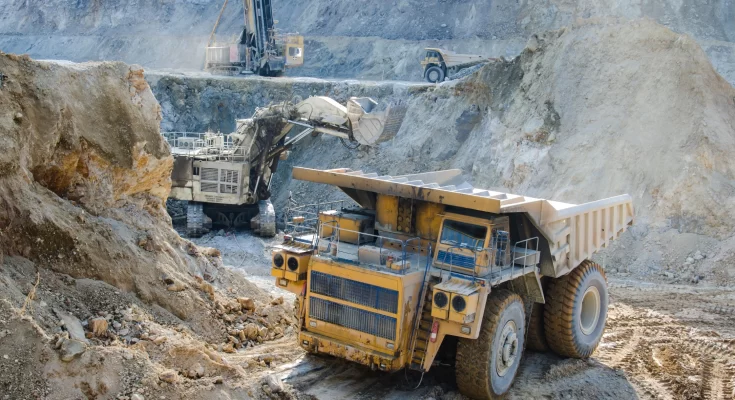Civil Society Warns of Rising Tax Risks Amid Green Energy Push
South Africa’s Mining Sector Faces Renewed Calls for Transparent and Fair Taxation. South Africa’s mining industry is under growing scrutiny as civil society groups and tax researchers call for a more transparent and equitable tax framework—warning that weak oversight could undermine climate goals and deepen long-standing inequalities.
The concerns were raised in a preliminary study presented at the People’s Summit, a civil society event held alongside global climate discussions ahead of COP30 in Belém, Brazil.
Researchers argue that without stronger tax accountability, South Africa’s push for green energy—particularly in the mineral-rich Northern Cape—may reproduce the same extraction-driven injustices that have shaped the country’s mining history.
Tax Policy Tied to Climate and Development
Jaco Oelofsen, a tax justice researcher with the Alternative Information & Development Centre (AIDC) in Cape Town, told participants that tax rules are at the heart of both climate policy and economic justice.
According to him, the study aims to connect global climate conversations with ongoing negotiations for a United Nations tax convention—a process heavily supported by African countries, including Kenya, Nigeria and South Africa.
The forthcoming report, prepared by organisations in South Africa, Brazil, and the Philippines, warns that mining companies continue to benefit from tax incentives and corporate structures that reduce taxable profits while local communities absorb environmental and social costs.
Special Economic Zones Under Spotlight
South Africa’s Northern Cape has been positioned as a hub for clean-energy minerals such as manganese, zinc and rare earths.
However, researchers caution that the region risks becoming a “sacrifice zone” due to weak oversight and generous tax concessions offered through Special Economic Zones (SEZs).
The government’s long-term plan includes two major SEZs, each offering favourable tax terms such as:
- A reduced 15% corporate income tax rate
- VAT exemptions
- Employment-related tax incentives
The study notes that while these incentives aim to boost exports and investment, the public rarely sees clear evidence of their long-term fiscal benefits.
One major project is the proposed Boegoebaai Port, expected to host a deep-water harbour and serve as a green hydrogen export hub anchored by petrochemical company Sasol.
Sasol, one of the world’s largest emitters according to the Carbon Majors database, has committed to cutting greenhouse emissions by 30% by 2030.
The company told DW that it is not expanding coal-based production in South Africa and remains compliant with air-quality laws.
See Also: Nigeria Confirms PAYE Rules Apply to Pastors, Imam
Royalty Risks and Revenue Leakages
A significant part of the concern relates to how mining companies structure their operations for tax purposes.
Oelofsen argues that many firms operating in South Africa use offshore entities—often in Mauritius, Luxembourg or other low-tax jurisdictions—to channel royalties, dividends, and marketing fees.
While these structures may be legal, they raise serious risks of:
- Profit shifting
- Under-reported taxable income
- Illicit financial flows
The study highlights the case of Vedanta Zinc International, which operates the massive Gamsberg zinc mine.
Researchers question why such a large existing operation should receive substantial tax incentives, especially given its controversial environmental history elsewhere.
DW reported that Vedanta and Frontier Rare Earths channel their South African investments through offshore jurisdictions with low withholding tax rates—creating potential royalty leakages for the South African Revenue Service (SARS).
Global Parallels: Brazilian Giant Vale Under Scrutiny
The report draws a comparison with Brazil, where tax authorities accuse mining giant Vale of using its Swiss subsidiary to reduce taxable income by selling iron ore at artificially low transfer prices.
A similar pattern, researchers warn, may emerge in South Africa if multinationals continue outsourcing marketing and sales to related offshore companies that provide “no real economic service.”
This allows profits to shift away from jurisdictions where mining actually takes place—directly affecting local tax revenues, especially in developing countries.
Tax Justice as a Climate Issue
As the world moves away from fossil fuels, the demand for transition minerals—such as copper, zinc, manganese and rare earths—is accelerating.
Researchers warn that unless South Africa strengthens its tax policies, communities may bear the environmental brunt of extraction without receiving meaningful economic benefits.
AIDC argues that fair and transparent taxation is necessary to ensure that:
- Mining royalties reflect true export values
- SEZ incentives are justified and monitored
- Companies cannot exploit loopholes for offshore profit shifting
- Local communities receive a fair share of revenue
- South Africa’s energy transition does not reinforce old inequalities
With COP30 approaching and African countries pushing for a stronger global tax framework, South Africa’s mining tax regime is likely to remain in the spotlight.




